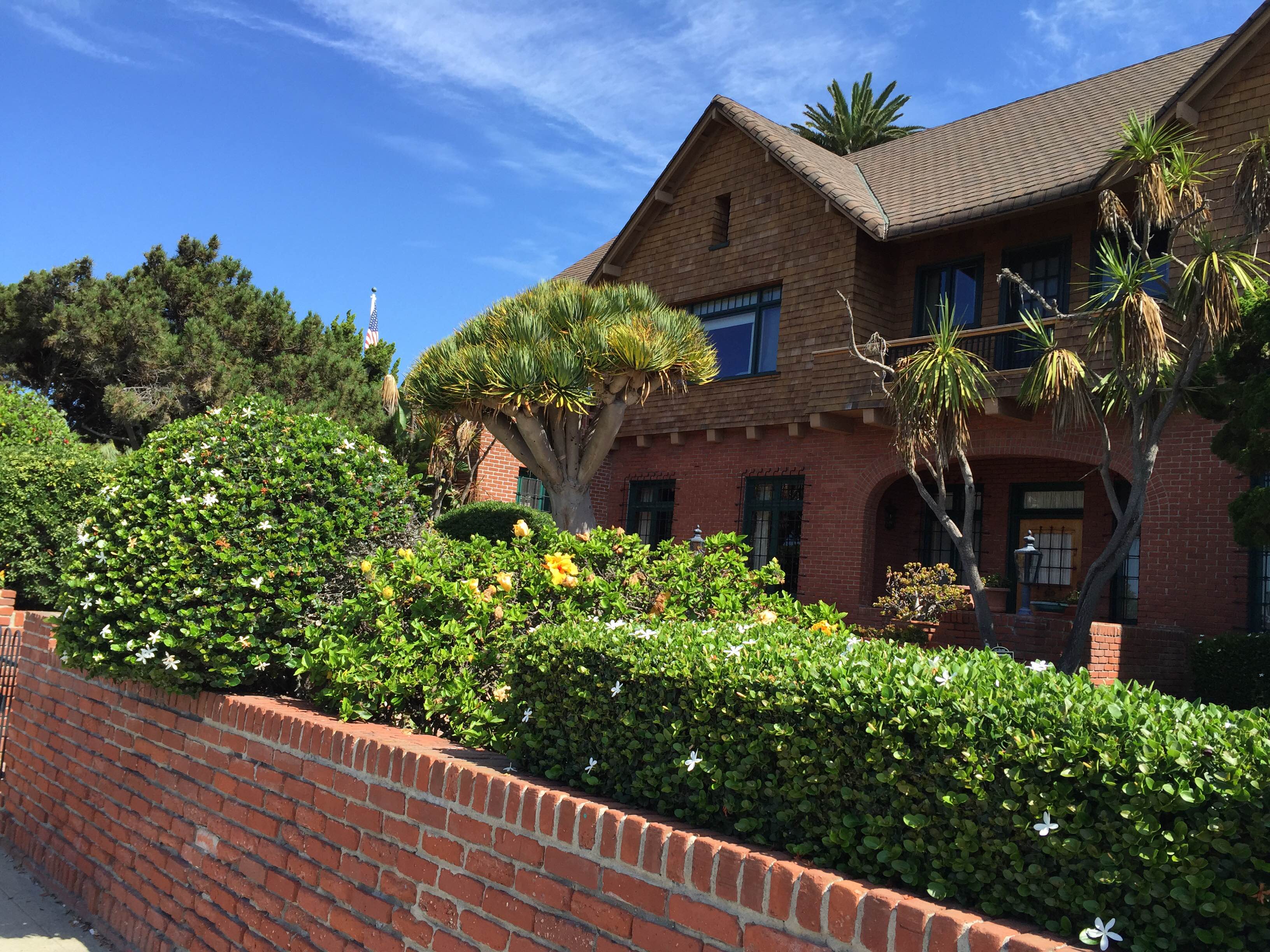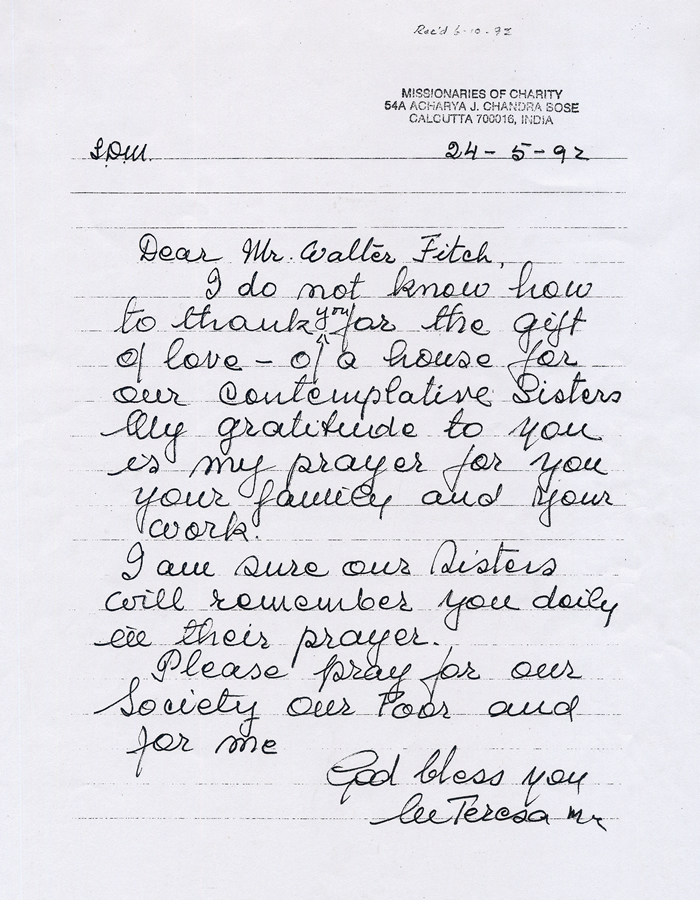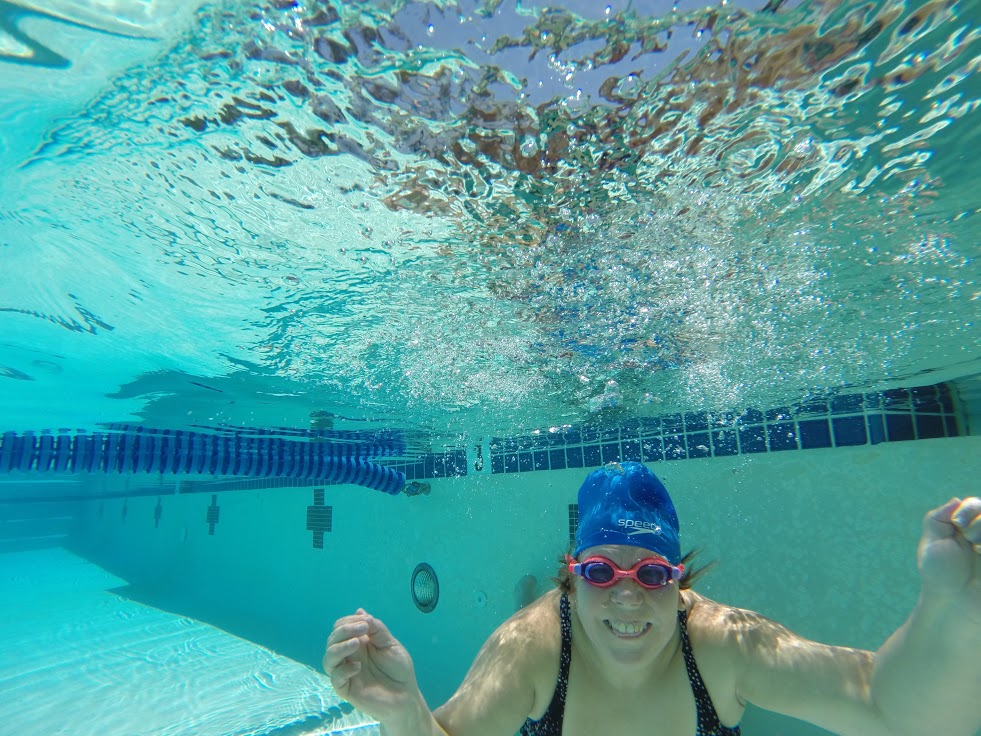
Betsy, resident of Noah Homes, who competed in the 2015 World Special Olympics.
A dream became a reality when a Catholic nun teamed up with a Coronado philanthropist and built a living community eight-acre property in Jamul, CA dedicated to the care of the developmentally disabled. Walter Fitch III was the philanthropist and Sister Kathryn Jennings was the nun. The two lives intersected at Sacred Heart Church, here in Coronado.
As a girl, this soon to be Benedictine nun, spent time with Walter Fitch III’s father, also named Walter. She read poems and stories to senior Fitch in his last days.
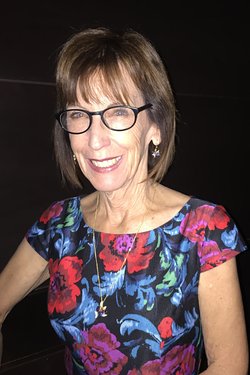 The Fitch family lived at 519 Ocean in the early days of Coronado history. Both the Fitch and Jennings families worshiped together at Sacred Heart Church.
The Fitch family lived at 519 Ocean in the early days of Coronado history. Both the Fitch and Jennings families worshiped together at Sacred Heart Church.
Left: Walter Fitch III. Below, the Fitch family residence at 519 Ocean Blvd., Aug. 2015 – AMK Bryan
Above: Kathryn Jennings, author picture, Amazon.com
The younger Walter III went off to Stanford, then Harvard, and then went on to become a commercial pilot – piloting one of the ten Pan Am Clippers (Sikorsky S42) that were built between 1939 and 1946.
Legend has it, that after serving as a pilot in these early days of commercial aviation, Walter III went to Texas, stepped in a puddle of oil, and in a few quick years founded Texas Oil and Gas.
In the 1970s, the young Miss Jennings entered the Benedictine orders and focused on service to the developmentally disabled. She later became to the head of special education for the diocese and ran a camp every summer serving these special needs children.
(Sikorsky S42, Wikipedia.com)
Not surprisingly, the now Str. Kathryn developed a close relationship with the parents of the children and young adults she served. Overtime, some of the parents expressed their common worry to Kathryn: What would happen to their child once they, themselves, were gone.? It became clear that many of these parents longed for a home where their beloved children could grow up safe and well cared for. Sister Kathryn saw this vision and committed to making it a reality.
Meanwhile, Walter III remembered Kathryn’s kindness to his father. Already a philanthropist who had built homes for Mother Theresa (enough to garner a letter of thanks from the legendary nun herself), and other large charitable projects. He told Kathryn he’d support her in whatever she wanted to do.
What Jennings wanted to do was to create a “forever” home for developmentally disabled adults – a community they could call their own. In 1982, Walter Fitch III purchased the property in Jamul, CA and built the first homes.: Noah Homes was born.
I took a tour of Noah Homes with CEO of Noah Homes, Molly Nocon.
Molly, passionate and infused with leadership capabilities, is the sister of one of the early Noah Homes residents.
The property, next door to Steel Canyon High School and recognizable by the ark out in front, looks like a church retreat center, a cluster of homes around an outdoor relaxing and recreation space.
There is an outdoor theater for skits, an indoor meeting center for arts and karaoke, and a basketball hoop. As we were walking up to the first home, to see what was cooking for dinner, one of the residents explained that he was off to join his buddies for a game of kickball.
(letter from Mother Theresa)
One of the most foundational aspects of Noah Homes is that Noah Homes is committed to each resident until end of life. Residents and families at Noah Homes pay nothing. This is a huge relief for parents and siblings who worry what will happen to their developmentally disabled family member as they themselves age and pass away.
But with that life-long commitment comes responsibility. Noah Homes is committed to never carry any debt, so there is no risk of losing the property from under the feet of the residents. Peter Ferrantelli, a businessman with strong ties to Coronado, and father to Michael, a resident a Noah Homes, explained that this is also a commitment to donors: “They know their money is safe and being used for the purpose intended. With no debt, they [Noah Homes] are never going out of business.” (Peter Ferrantelli and a resident of Noah Homes) 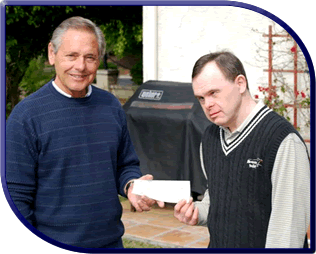
Another part of the commitment is having a facility that can serve the needs of the aging residents and many their inevitable decline into Alzheimer’s Disease.
In fact, given that it is the 21st chromosome that had been identified with with Alzheimer’s, and our fellow citizens with Down’s Syndrome, carry two 21st chromosomes, Alzheimer’s is inevitable. Because those with Down’s Syndrome, age faster, Noah Homes is dealing with Alzheimer’s at an increasing rate. Regular Alzheimer’s facilities are not equipment to handle the developmentally disabled with Alzheimer’s Disease.
Walter Fitch III passed away in 2002 at the age of 92 from Alzheimer’s Disease and while those in the Noah Homes community were saddened by the passing of this great man, his financial estate gifts left a lasting legacy. The Jesuit priest who eulogized Walter, who never married nor had children, said: “Walter Fitch was a man without a family and he considered the children of Noah Homes his family and he loved them so. ” (Walter Fitch III and a Noah Homes resident)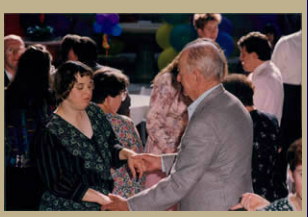
To honor Walter Fitch legacy and to express his gratefulness for the care Noah Hoes gives to his own son, Peter founded the Noah Homes Ark Angel Foundation that worked to match the estate gifts left by Walter Fitch.
In 2010, Noah Homes, CEO Molly Nocon, received a phone call that charitable foundations only dream of: Another Sacred Heart parishioner, Frances Harpst, who had no previous contact with Noah Homes, bequeathed the residential facility in her will.
Coronado resident, Leslie Crawford, encountered Noah Homes as she and her husband sought to give their son Andrew more independence. Andrew was the first developmental disabled student to go all twelve years through Coronado High School’s special education program. At first they thought they might build a residence here in town for Andrew; but once Andrew arrived on the Noah Homes campus, he wanted to stay. “We were as surprised as anyone,” remarked Leslie, “but like all of us, he wanted to be among his peer group – his friends.”
Both Peter and Leslie have nothing but the highest praise for Noah Homes. Peter started my interview with him by saying: ” Noah Homes is unique. It’s the best place on this earth for those who are developmentally disabled.” Leslie explains: “It’s been a miraculous couple of years for Andrew. He is so happy, he truly has a second family, with an active peer group.”
Noah Homes has attracted not just Coronado, but San Diego’s philanthropic community. Jim Laslavic, long time Coronado residents has donated much time and money to Noah Homes, as has T.V. personality, “Sam the Cooking Guy.”
Leslie shared that when Andrew turned thirty she and her husband wanted to have a very special birthday party for him. They rented out the Village Theater and invited Andrew’s Coronado friends and teachers, as well as his Noah Homes friends – his second family. There were about 150 people in attendance and Andrew couldn’t have been happier dancing to his favorite scene in the movie.
I wasn’t there, but I can just see that happy day, Coronado and Noah Homes, still deeply connected.
Noah Homes is celebrating this connection to Coronado. Leslie Crawford and Francette Roeder invite you to join them.
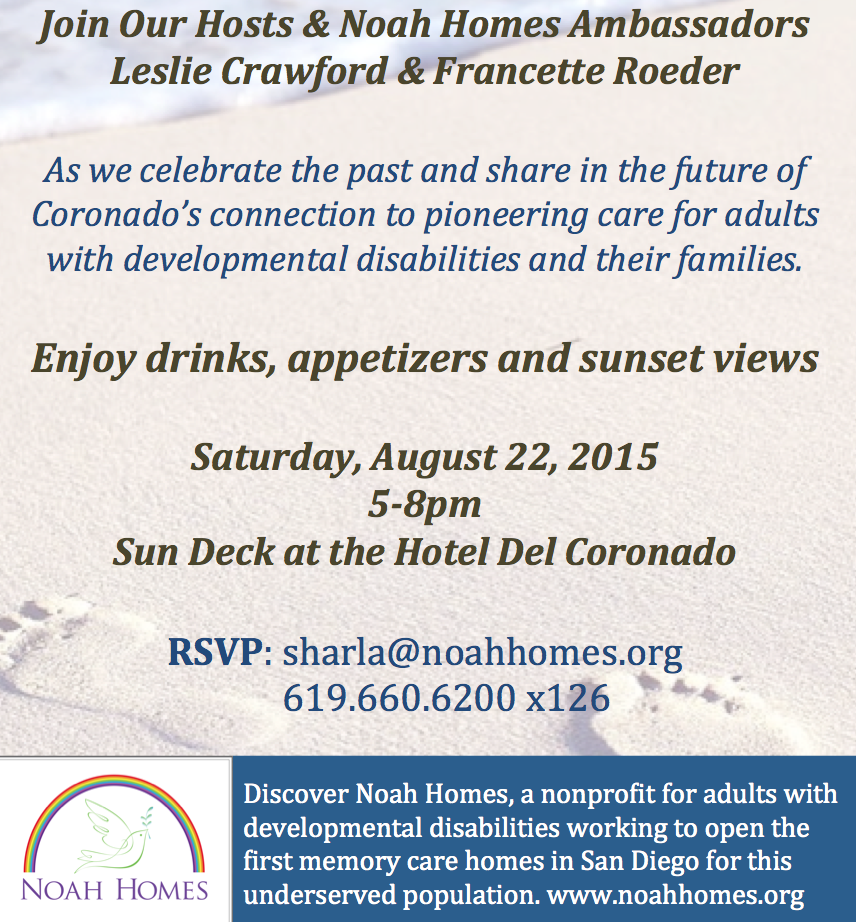 This month Noah Homes is celebrating this special relationship with Coronado. Lesley Crawford and Francette Roeder, invite all residents to join Noah Homes for a reception at the Hotel Del on August 22, 5-8 for cocktails and hors d’oeuvres.
This month Noah Homes is celebrating this special relationship with Coronado. Lesley Crawford and Francette Roeder, invite all residents to join Noah Homes for a reception at the Hotel Del on August 22, 5-8 for cocktails and hors d’oeuvres.
Join The Journey from Noah Homes on Vimeo.
Meet the Folks of Noah Homes and join their journey.
www.noahhomes.org





